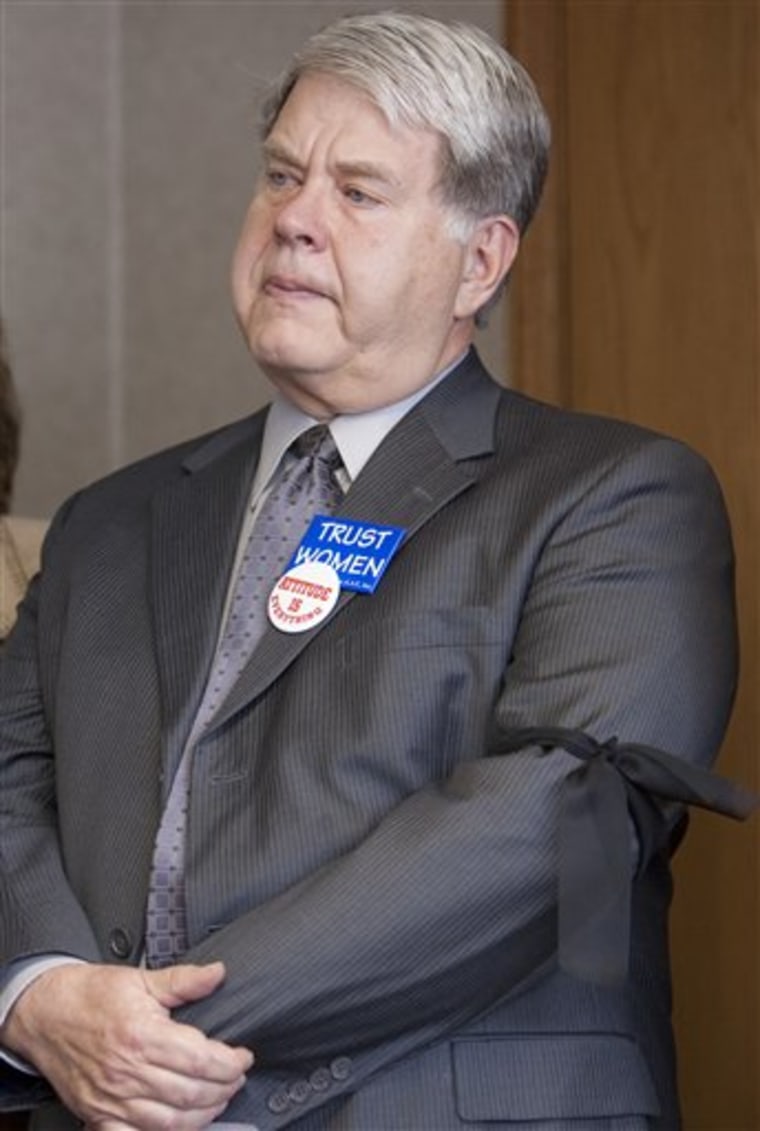An abortion doctor said Friday that he will likely perform more late-term procedures at his Nebraska practice to meet the demand left when a Kansas physician was shot and killed earlier this year.
The move could solidify Nebraska's and Dr. LeRoy Carhart's place at the center of the fight over abortion because he's trying to offer the late-term procedures his friend Dr. George Tiller offered in Wichita before his death.
Carhart has considered opening a clinic in Kansas, but said he thinks expanding his practice in the Omaha suburbs may be the best option because it is easier for patients to get flights into Omaha than Wichita.
He said his lawyers have told him he's not breaking state law by performing late-term abortions in Nebraska, but he hasn't made a final decision on the clinic's future.
"We have not given up on the plan," Carhart said. "But we feel pretty confident that we're going to be able to do everything in Nebraska that we could do in Kansas."
The Nebraska attorney general's office declined to comment Friday on Carhart's clinic and what state law allows.
Staff now trained
Earlier this year, Carhart said he had not performed any abortion past the 22nd week of pregnancy at his own clinic because he never trained his staff to do them. He said Friday that his staff in Bellevue has now been trained to handle abortions later in pregnancy.
Carhart said he is performing one late-term abortion every eight to 10 days in Bellevue, but he didn't say how late in pregnancy those abortions were performed. If he decides to do more late-term abortions in Bellevue, Carhart said he would remodel his clinic to handle a higher number of them.
The anti-abortion group Operation Rescue praised the news that Carhart may not open a clinic in Kansas. Operation Rescue President Troy Newman said he considers it a victory that Tiller's clinic has remained closed since his death.
Now Newman plans to continue putting pressure on Carhart so he won't be able to offer the late-term abortion service Tiller provided.
"His abortion clinic is one of the ones that we desperately want to close," Newman said.
Operation Rescue and other groups have staged protests outside Carhart's clinic in recent months, and the number of protests has increased.
The protests outside Carhart's facility are similar to what regularly took place outside Tiller's clinic, which concerns the National Abortion Federation.
The federation works with local and federal law enforcement to track incidents outside clinics and ensure protesters aren't allowed to commit crimes that might escalate into violence, said President Vicki Saporta, whose group represents more than 400 abortion providers, including Carhart.
"We certainly are concerned about the security of Dr. Carhart and the rest of our members," said Saporta, whose group also advises doctors on security.
Before Tiller's death May 31, Carhart performed late-term abortions at Tiller's clinic although he's run his own clinic in Bellevue since 1985. Tiller's clinic was one of only a few facilities in the country that performed third-trimester abortions.
Neb. limits stricter than Kansas
Carhart said he really doesn't expect another legal fight because of the changes he's contemplating at his practice.
"We're not going to do anything that even approaches illegality," Carhart said.
Nebraska law does not allow an abortion if the fetus is considered viable, or able to survive outside the womb. Kansas law allows abortions on viable fetuses after the 21st week if carrying the pregnancy to term would endanger the mother's life or cause a "substantial and irreversible impairment" of a major bodily function. Courts have interpreted a "major bodily function" to include mental health.
Carhart twice has appeared before the U.S. Supreme Court to challenge bans on a procedure its opponents call partial-birth abortion. In 2000, the high court ruled for Carhart in striking down a Nebraska law because it lacked an exception to preserve a woman's health and encompassed a more common abortion method.
He filed a lawsuit in 2003 challenging the federal Partial-Birth Abortion Ban Act. In 2007, the high court upheld the federal ban on the procedure, which generally was used to end pregnancies in the second and third trimester.
